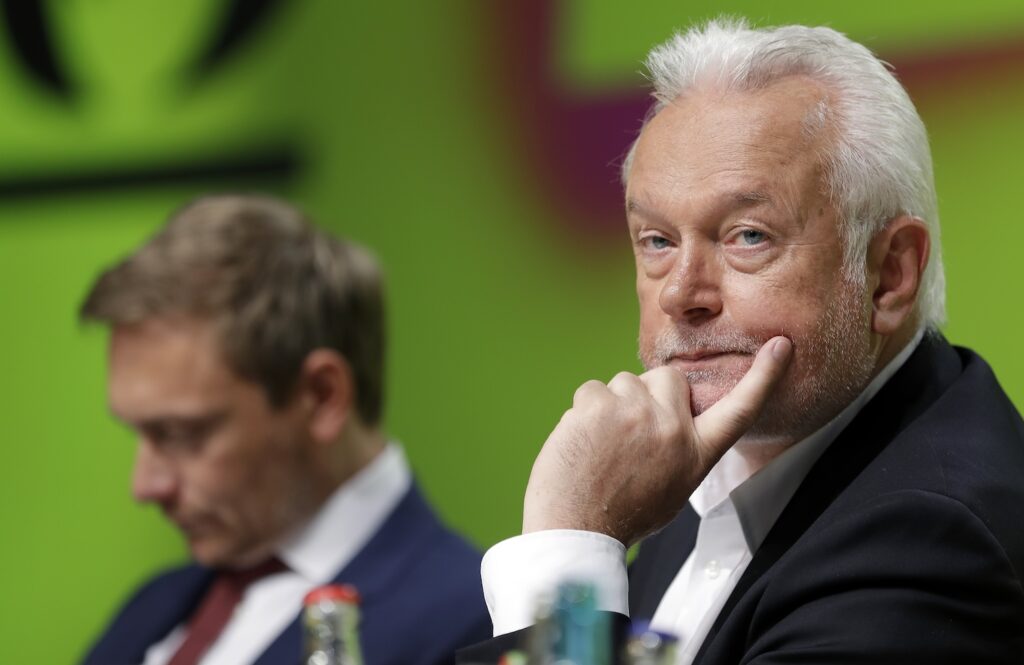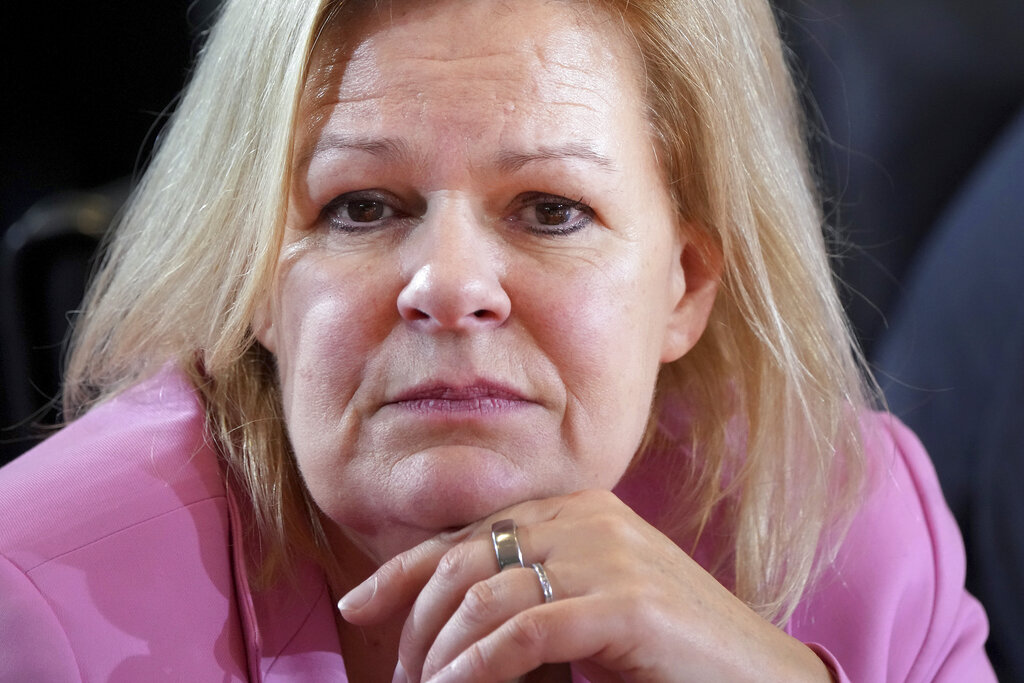There is increasing tension between the coalition parties governing in Germany’s three-way government, with the Free Democrats (FDP) turning up the heat in the dispute over freedom of expression, especially when it comes to the country’s controversial interior minister.
The German law enforcement structure and domestic spy agencies are looking to reshape the country with the new “Democracy Promotion Act,” which will contain a number of measures that will allow the government to take action against those critical of the government, including the ability to prosecute expressions of opinion that typically fall below the criminal liability threshold.

Now, a number of well-known politicians from the FDP party, which is known for its libertarian leanings when it comes to freedom of expression, are using particularly harsh language against Faeser and the government’s plans. The criticism is notable given the FDP’s own role in the coalition.
Bundestag Vice President Wolfgang Kubicki, who is the deputy federal leader of the FDP, told Bild newspaper: “The fight against the ‘right’ seems to be turning into a fight against rights.” He is now calling the interior minister a “threat to democracy,” and said he “never dreamed” of describing her in such a manner.
[pp id=38205]
Other FDP politicians are also taking issue with Faeser’s “fight against the right.”
“Freedom of opinion & the principle of proportionality are central contents of our constitution. The end does not justify every means. Well-intentioned does not mean well-done. Discrediting legitimate criticism by citing political murder is infamous,” wrote FDP MP and former General-Secretary Linda Teuteberg.
However, Kubicki is also attacking the president of the Federal Office for the Protection of the Constitution (BfV), Thomas Haldenwang (CDU), who has introduced a number of controversial policy changes. Among them is a paragraph that allows the powerful domestic spy agency to monitor dissidents for “delegitimization of the state.” Critics point out this loosely defined term could be turned against critics of the German government.
“With the delegitimization of state institutions, criticism of the actions of state actors can almost at will be said to endanger the state,” said Kubicki.
Remix News has covered Haldenwang’s statements in the past. He is a direct member of a rival party to the AfD and routinely attacks the opposition party. Last year, for example, he stated on German public television: “We are already observing that the AfD and members of the AfD are making a significant contribution to promoting extremism in Germany: Spreading hate and right-wing extremism are part of its ideology. Russian narratives are also controlled and disseminated by parts of this party. This contributes to right-wing extremism being able to expand in Germany. And in these circles, Putin’s song is sung.”
Kubicki is drawing parallels to the communist-ruled East Germany (GDR) era, which had a specific clause in the penal code labeled “the criminal offense of anti-state agitation.”
“The interior minister apparently doesn’t seem to care to be bothered by the fact that she falls into this authoritarian way of thinking. All I can say is: Not with me, Ms. Faeser,” said Kubicki.
The FDP has in the past claimed it would not support certain measures put forward by its left-liberal coalition partners, such as a new law that significantly liberalized immigration laws in Germany. The party, however, has faced increasing pressure in the polls, leaving party leadership scrambling to save the party following a string of severe election losses at the state level.






